Graham Reid | | 6 min read
Aleph-Bet
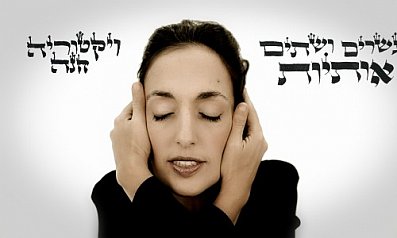
On You Tube you can easily find a short video of Israeli singer Victoria Hanna conducting what is called a cymatic experiment with her voice. She did it at home by using a microphone to sing into a scattering of sand, and as she sings pure notes the sand rearranges itself into pleasing geometric shapes.
For Hanna – who grew up in an ultra-Orthodox Jewish home in Jerusalem surrounded by religious and philosophical books, and where her Egyptian father was a rabbi – there is a profound spiritual meaning to this.
In the ancient texts we read that in the beginning was the word and the word was God, that sound came into the void of space and matter took shape.
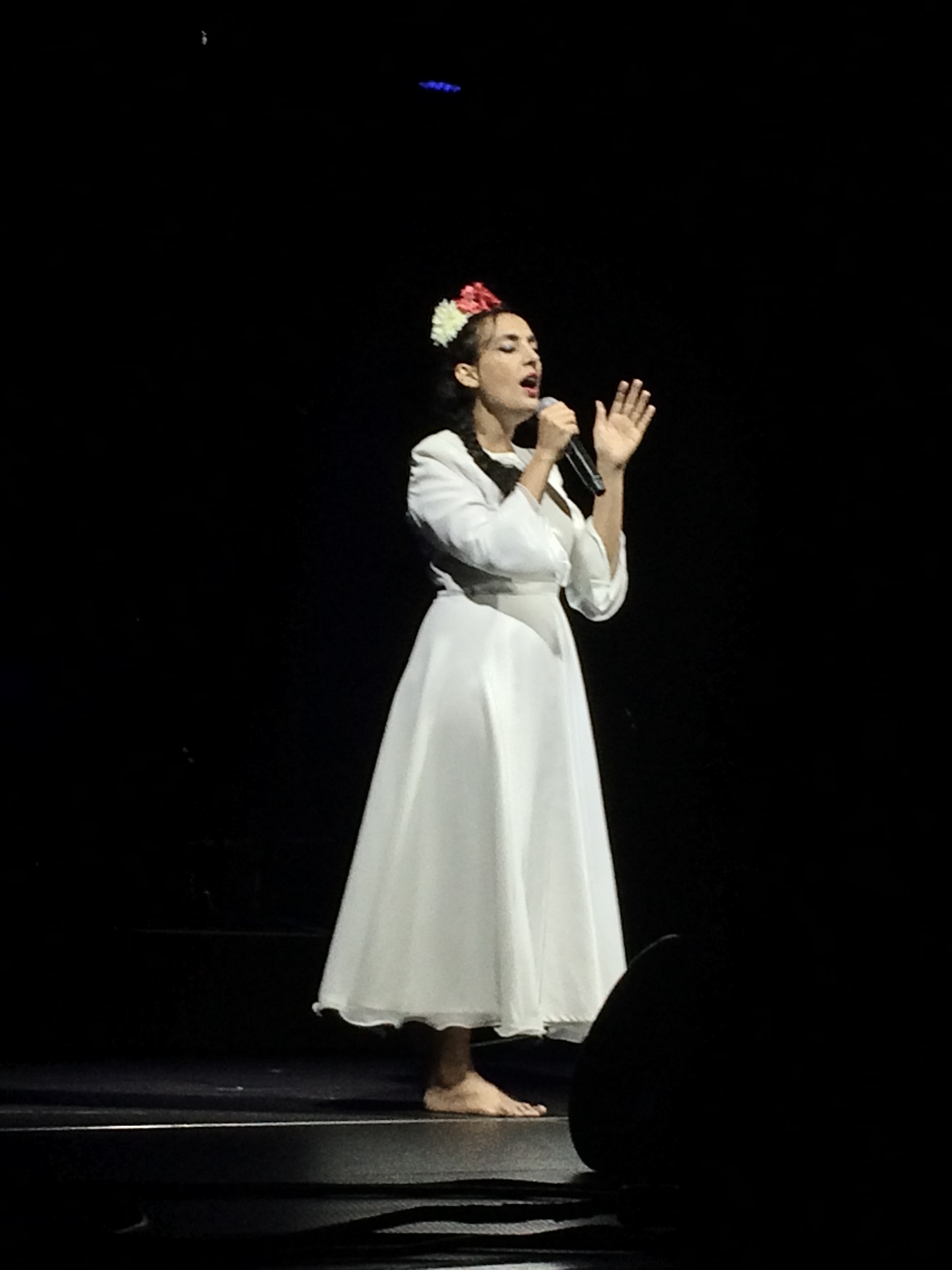 Sitting backstage at Womad the day
after her beguiling evening performance the previous night, she is
enthusiastic about this experiment because it also confirms what she
believes about sound on a very personal level.
Sitting backstage at Womad the day
after her beguiling evening performance the previous night, she is
enthusiastic about this experiment because it also confirms what she
believes about sound on a very personal level.
“In that – and I am not the first one who did this – you can see where I am pouring my voice into the sand and you wouldn't believe what beautiful structures are created in real time and responding to my sound.
“It is only voice, just sound, and this shows how sound provokes and changes matter. We are part of this world [of sound and matter].”
She speaks of a Japanese photographer who some years ago conducted a similar experiment using a microscopic camera as he sent the sound of his voice into water: “When he is cursing, the molecular structure is making terrible shapes but when he is blessing or saying good words the shapes are very beautiful and geometric.”
The sound of the human voice and its spiritual dimensions have long been part of Hanna's experience of and interaction with the world, from the time she was a child when she stuttered. Yet when she sang . . .
“I always liked to sing and it was emphasised in the fact that I was stuttering as a child and whenever I was singing my voice was completely fluent, so singing was an escaping place and I was in a different world when I was bringing notes and not words out.
“This was a different zone from that of speech which was the reality and everyday life, the hard things. But singing notes was like magic so I wanted to be there.
“I would be singing to myself in front of the mirror and even when children would laugh at me when I was stuttering I would stand on a rock and be pushing my voice up into the sky to God to help me.
“It was like my first aid in my mouth. For Jewish people we have this in our voices, this mantra and whenever something happens your mouth starts to work to change the reality.”
In her concert she spoke of the five points in and around the throat and mouth as being places from which different sacred sounds can emerge, and her best known piece of music is The Aleph-bet Song in which she sings the sounds of the Hoshana Prayer.
Her music is informed by Hebraic texts and the spiritual wisdom of the Kabbalah, and in concert sang one of the Song of Songs from what Gentiles know as the Old Testament. She also sang pieces in Aramaic, the ancient language which Christ spoke.
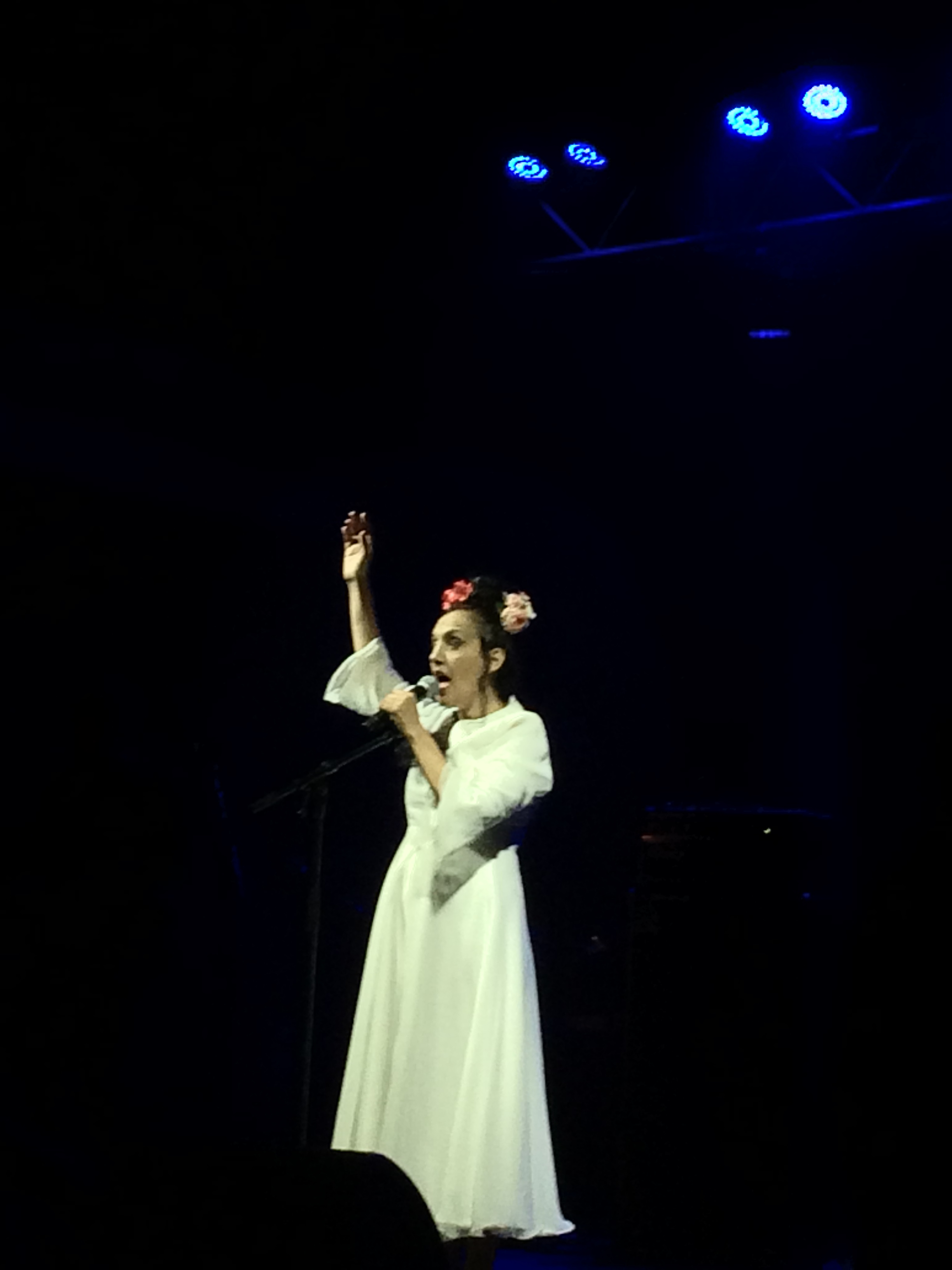 These are unusual and rare experiences
for a music festival crowd but her increasingly powerful voice and
the sometimes strident dance beats as a backdrop sold them
effortlessly, as did her explanations.
These are unusual and rare experiences
for a music festival crowd but her increasingly powerful voice and
the sometimes strident dance beats as a backdrop sold them
effortlessly, as did her explanations.
In a world of singers and vocalise artists such as Bjork, Meredith Monk (one of Hanna's favourite artists) and Tagaq, Hanna's music is perhaps not as unfamiliar or difficult as it might seem. It is about sound as much as it is about the words being sung.
“When I travel the only thing I am addicted to is to listen to sound, not music just sound. Speech and words and too much information is not my interest sometimes.
“When I hear people around the world
speaking in a language I don't know I am so interested in the sound.
I don't need to know what the words mean when they are talking, I am
addicted to hearing how people are pronouncing their own
language.”
And of course she is curious about others'
spirituality.
“I had a very nice meeting with some Maori people here and we connected a lot of things similar in our traditions.”
Yet here is a woman who grew up quite separate even from many other Jewish people by virtue of being ultra-Orthodox?
“True, but it is known for us that there are relationships between us and the people outside, so we acknowledge that. Everything we observe in our childhood becomes a part of us and this of course became a part of me because it was very intense to grow up like that.
“So I had Kabbalistic knowledge. I didn't really study it but I grew up with so much of it in my home that I absorbed it in my genes.
“And there are a lot of Aramaic texts, the Zohar is the most important Kabbalah book and it has many different chapters but it is all in Aramaic and it is an amazing book of knowledge with its imagination and information. It is full of inspiration.
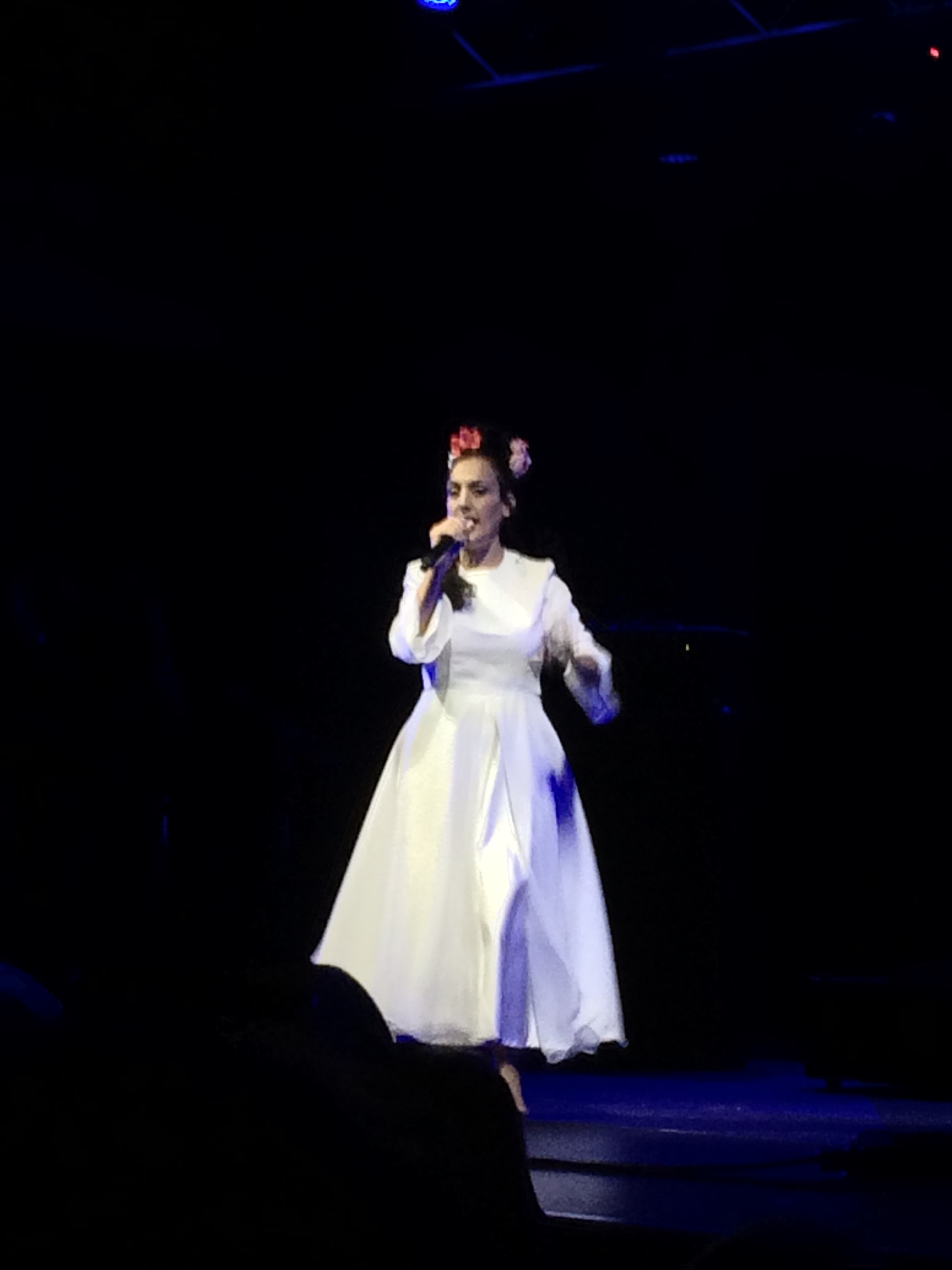 “It is not only for religious people
but it is full of so many beautiful ideas, crazy ideas even I would
say.”
“It is not only for religious people
but it is full of so many beautiful ideas, crazy ideas even I would
say.”
A book I should read then?
“Yes, it is very philosophical and spiritual and very inspiring. So yeah, yeah. You should,” she laughs.
She admits that when she grew up her life was strict and not that inspiring to her in many ways “because you need to obey rules. You don't feel that inspired by the rules but you have to obey them. But when I discovered those texts I got a lot of inspiration because they are very creative.”
“The people who wrote them were a different zone, they were creating ideas from an unconscious place. It is almost hallucinating.”
I tell her that when I went to the top of Mt Nebo in Jordan where Moses stood and saw the Promised Land . . . but that I imagine after going through that arid, rock-strwen and barren landscape anything would look like the Promised Land.
She laughs and says that yes, living in those deserts would change your mind.
Hanna, married with three children, describes herself as Orthodox – she would not perform until after sundown on the Sabbath, as she did at Womad late on Saturday night – but “in my own way I am Orthodox.”
“For ultra-Orthodox people they would not say I am not Orthodox because I am not covering my hair for example. But I have my own relationship with faith.”
Needless to say she has a solid audience in Israel and New York, but touring playing Womad festivals is putting her before different audiences again and she recently admitted that she is still coming to term with performing for gender-integrated audiences.
Does she hope that she might be breaking down the barriers between people with this spiritually imbued, traditional music?
“I hope,” she laughs. “I think the music is an international language and sound is too. I am not dealing here with a local thing but am taking the language as a song and I hope it will inspire many people to empower them.
“And I hope my story will inspire many women to express themselves. Also for people to connect with their own roots, and to understand that connecting with our past doesn't mean that we have to be narrow-minded or traditional.
“We can connect with our roots and bring our own interpretation. We don't have to make a cut from the past. You carry your past and heritage with you.”
Her cymatic experiment with sand has re-enforced to her that we need to be careful with what words and sounds we put into the world.
“You know, this idea is also in ancient traditions. We say in Judaism that life and death are in the tongue”.
All live photos copyright Megan Stunzner. Used with permission.
For other interviews with artists at Womad 2018 start here. For a review of the festival go here.


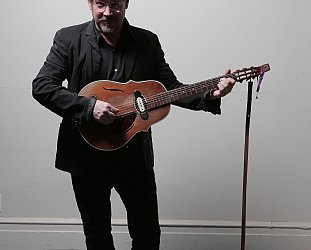
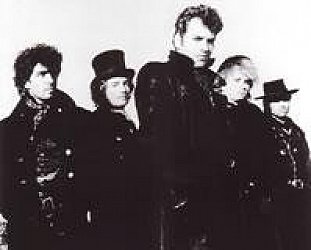
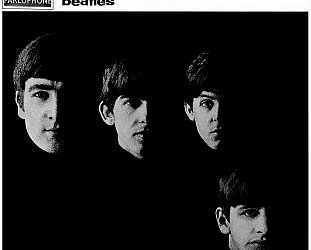
post a comment